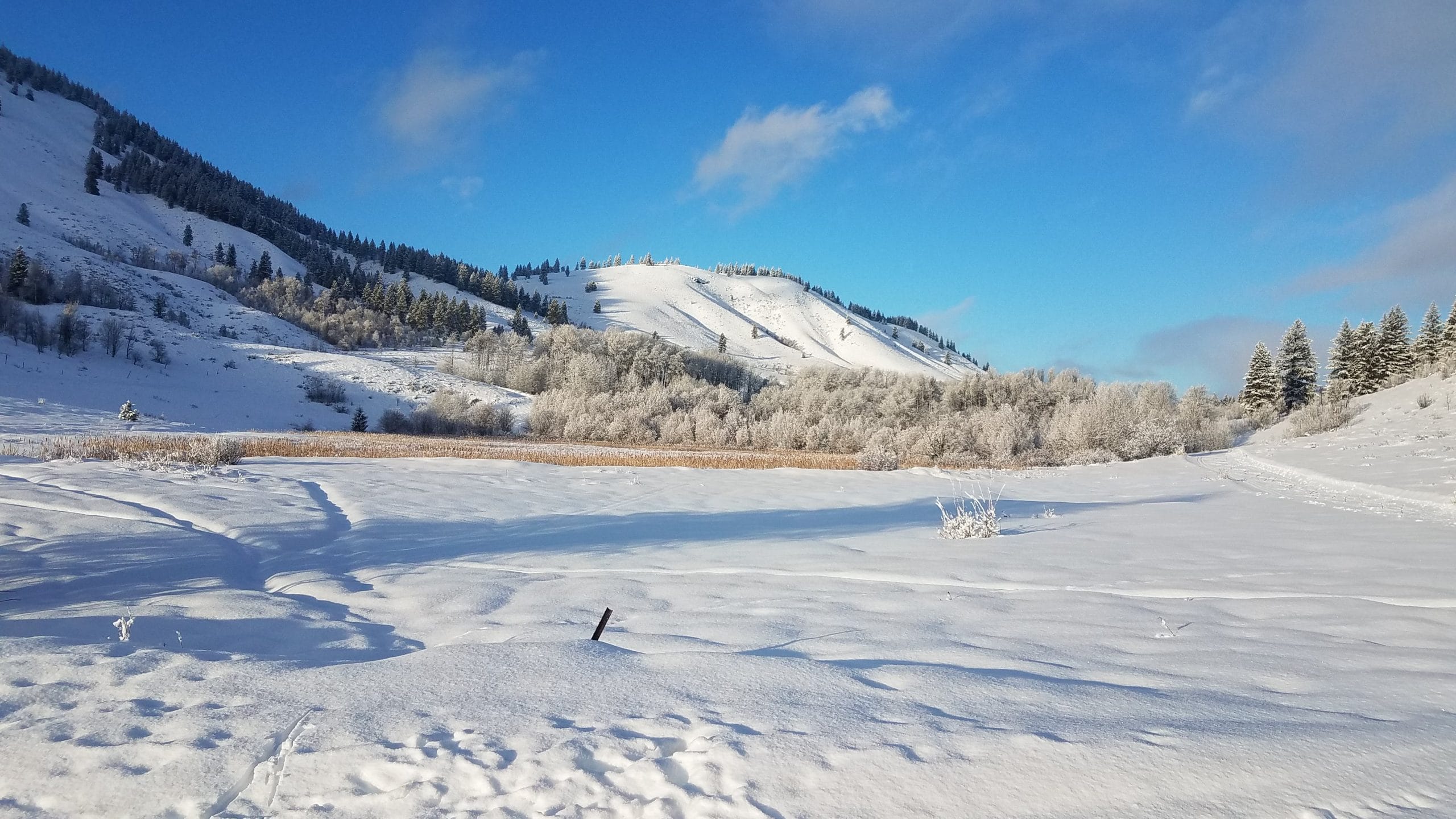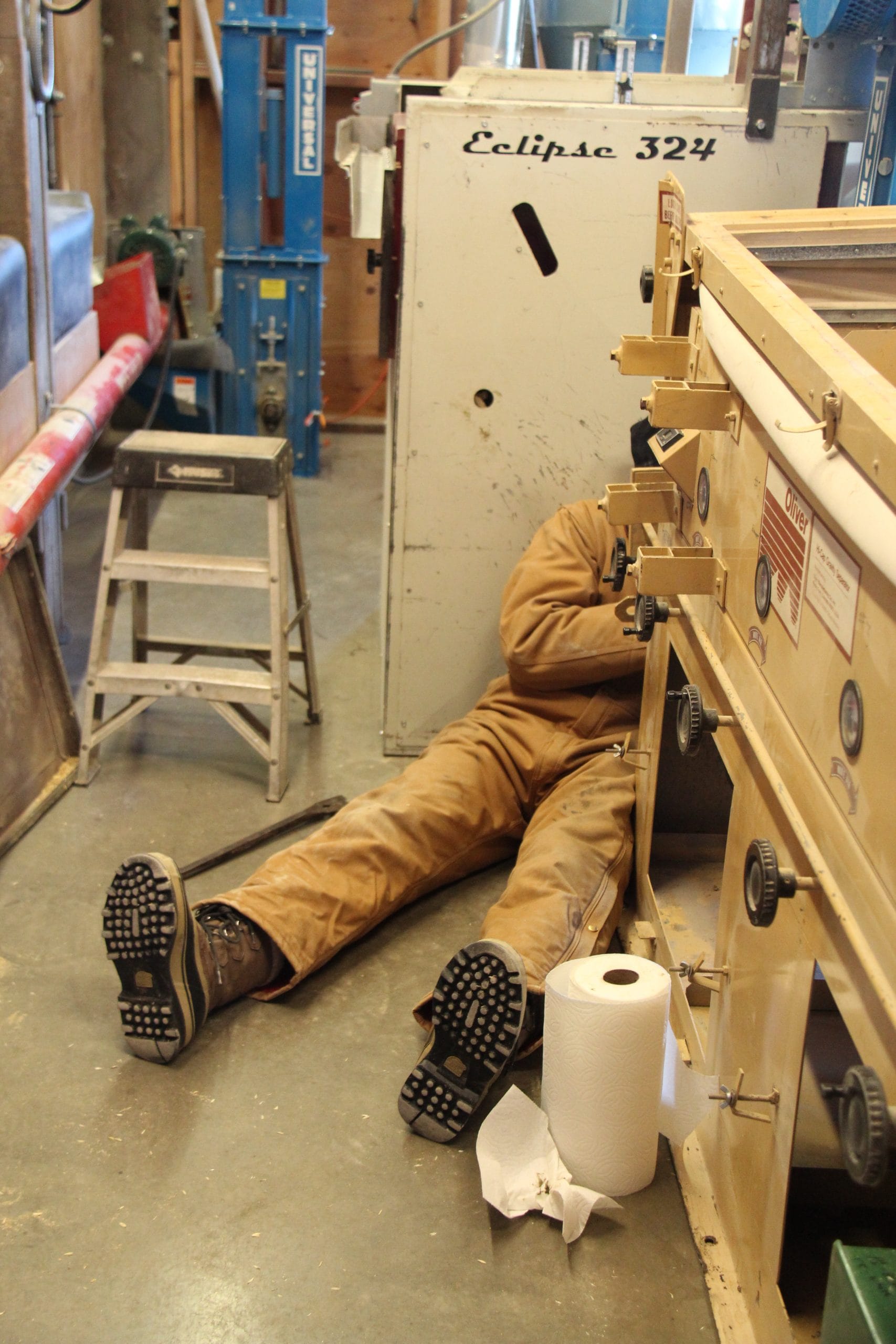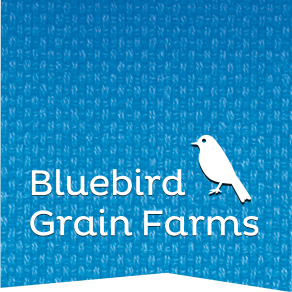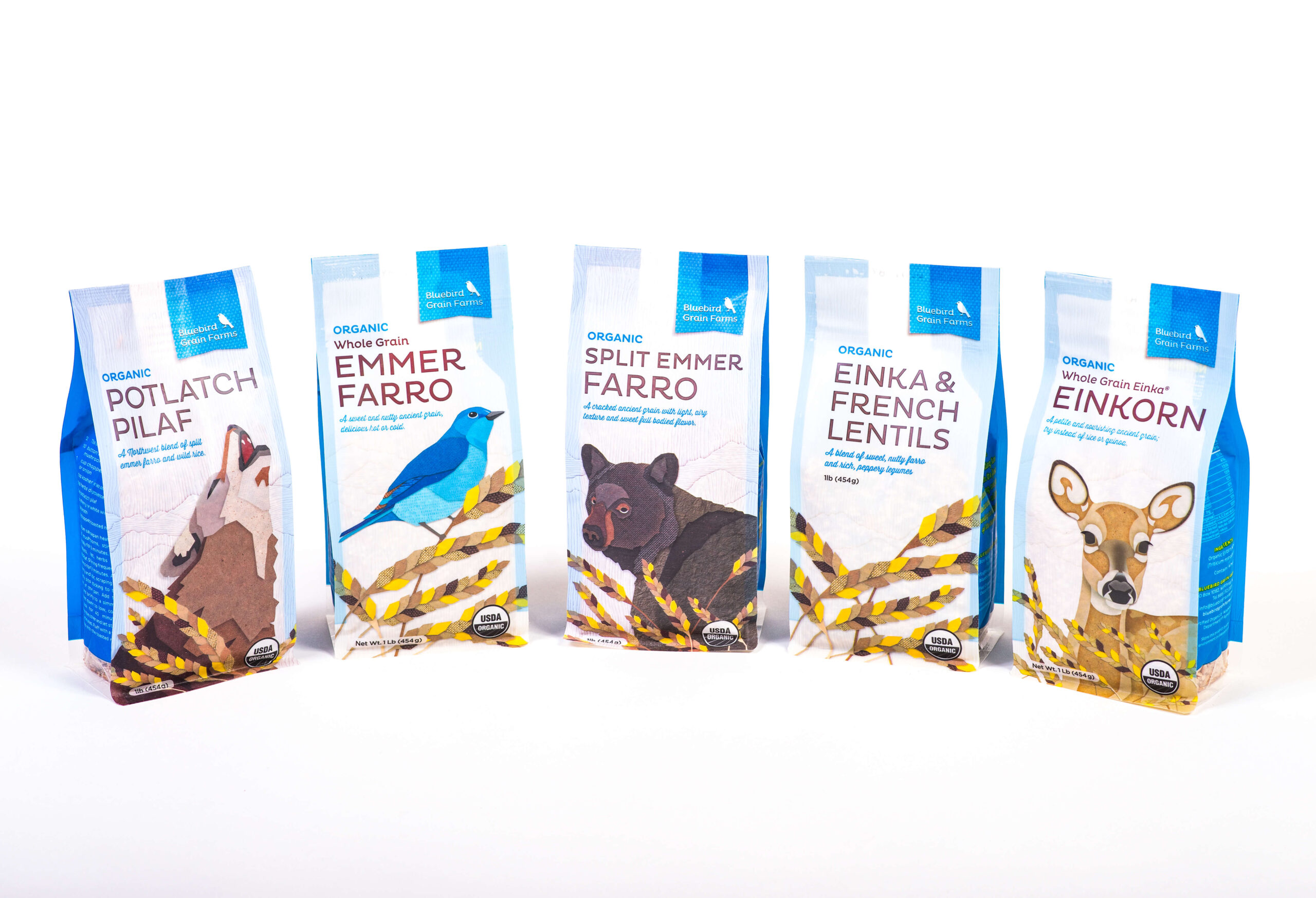
Sunshine! At least today, with purple finches singing from the bare aspen limbs. Owls fill the night and on cue today, I heard the first red-wing blackbirds along the lower marsh. Yes, it makes one think of spring, even those of us who love winter. An on and off winter it has been here in the Methow which in some ways makes it seem like a long winter when in reality, we’ve never had 2 feet of snow on the ground. What we’ve lacked in snow, we’ve made up for in gray, stagnant days. This is the first week we’ve had more than 2 sunny days in a row!
We’ve gotten moisture in various forms: Rain, snow, fog, mist… and to be sure, we want moisture. Winter rain here may not be everyone’s favorite, but the year began with well below-average moisture in the North Cascades basin, and now the region is slightly above average! As I’ve mentioned time and time again, ole’ Mother Nature seems to somehow always even her things out.
The usual challenges come with winter up here at the granary which is nestled tight to the foothills. Servicing both In and outbound freight becomes much more of a chore and this winter we’ve had a fair amount of ice to go on top. Alas, the Bluebird the granary runs on, 5 days a week, and our tenacious crew keeps things chugging along. We’ve yet to miss an order.
Following the expected post-holiday lull, February generally begins to pick up in sales and we’re beginning to get busy again this month. Our grains continue to clean and mill well and we sure hope they are helping nourish many a soul.
My thoughts do drift a little by now back to the fields. This spring I’m looking forward to farming Bluebird’s own piece of ground that we bought two years ago. I developed a pivot irrigation system on it this past fall. The ground has been in certified organic alfalfa, and I plan to plow out the stand, then sow it with spring grain. The residual nitrogen from the alfalfa crop should help grow a fine, high-quality stand of grain. On our Big Valley lease, I will be rotating in a season of cover-crop. I’ve not decided yet which mix we’ll use but likely early vetch, then followed up with later season buckwheat? We’ll see what spring soil tests dictate?
As more and more talk circulates about “Regenerative” or “ Restorative” Agriculture, my thoughts stay where they’ve always been in regards to “sustainable” agriculture. The premise of organic agriculture is keeping the soil alive and well and ideally, in the best shape, it can be. I’m not saying better than Mother Nature here, as there is plenty of proof that Agriculture without question can be detrimental to Nature. If one studies nature and applies her lessons to what they want to grow, however, the stage is more easily set for the organic process. Carbon sequestering and building a myriad of biology in the soil are not new concepts; in reality, these concepts are quite old.
I sometimes cringe when I hear the term “Conventional Agriculture”. It generally is in reference to “Big Ag.” as opposed to organic. Or at least, non-organic. Really, it has only become “conventional” in the past 75 years. What might or should be more conventional, perhaps, is actually growing nutritious food and in a manner that keeps the by natural carbon sequestering through building proper and varied soil biology. Continuous crop rotation, minimal tillage and lots of cover crops without chemicals is one proven way to achieve this. The end result: Health.
Misfortune in our food system and thus, our health system has ridden the coattails of high chemical input farming. This continues and yet at the same time, the organic food sales continue to sore – now at 5% of the overall purchases. With this growth, of course, comes growth in production. This paradigm plays out with little, if any, federal subsidies.
Here at Bluebird, our ethics haven’t changed – farming-wise or food-wise. We like to grow and eat good food! And as we partner with other growers, we are supporting these same ethics and trying to bolster a solid marketplace for their devoted efforts. Treating the soil, and our food with respect certainly can reap its own rewards. However, farming is not cheap -, particularly without a market safety net.
Ultimately, it is you the consumer that rewards our efforts and helps us spread the news. Call it “conventional news” or unconventional or, well good news: What is good for the soil is good for us. For this, we are most grateful. These are my later winter thoughts as the light lengthens and new smells begin to seep out despite the ice rink surrounding the Bluebird granaries…
Yours, Farmer Sam


